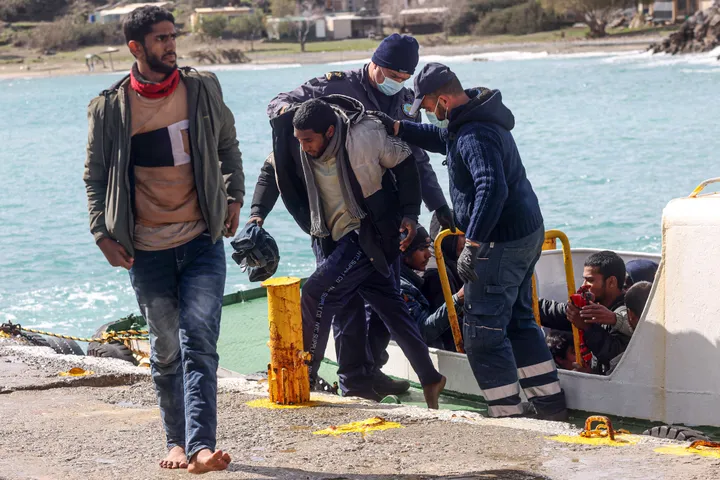Senior Egyptian Muslim Brotherhood leader Mohamed al Beltagy has been suffering from a critical condition in the notorious Aqrab prison.
Beltagy was sentenced to life in prison by the Egyptian Criminal Court in August 2018.
Sanaa Beltagy, wife of the imprisoned parliamentarian, published a statement on Facebook saying that her husband has been in critical condition due to a blood clot in his brain.
His son Ammar Beltagy spoke to TRT World about his father’s condition and said: “We do not have any opportunity to get information about my father’s health.”
According to his family, Beltagy is in desperate need of examination by a neurologist, but the Egyptian authorities are turning a blind eye to his suffering.
“On January 15, we heard that he had cerebral haemorrhage, however, he was not sent to hospital,” his son Ammar said.
“We observed some syndromes, or problems, on his right arm and legs on last trial.”
Ammar said that his father also suffers from high blood pressure but he has not taken medicine for it for a long time as the authorities are not providing any.
“We haven't been able to visit in almost three years, we do not have direct access,” he said.
The only time Beltagy's family receive any information about him is during court proceedings. His lawyers or relatives of other prisoners who at times see him for a few seconds gather some knowledge about his wellbeing and pass it on to his family.
“Torture is not the accurate word, but I can say they are trying to kill him slowly and systematically,” Ammar said. “No health check in a long while, no hospital visits and all this amounts to my father being left to die a slow death.”
Beltagy’s daughter Asma was killed by forces under the command of Egyptian military general Abdel Fattah el Sisi in one of the worst state-organised mass killings of protesters in Egypt's Rabaa Square in August 2013.
Her killing has become an international symbol of what became known as the Rabaa massacre.
Together with Asma’s killing, Human Rights Watch reports confirm that hundreds were killed with bullets to the head, neck and chest, and that security forces, including professional snipers on rooftops, fired indiscriminately into the crowds of protesters.
Since Sisi toppled Mohammed Morsi, the country’s first democratically elected president in a coup in 2013, 19 judges have issued a total of 1,056 death sentences.
Thousands of Muslim Brotherhood members, supporters and human rights activists have been imprisoned by the Sisi regime.























